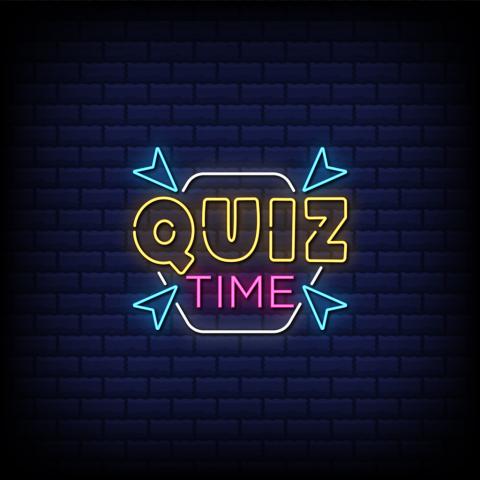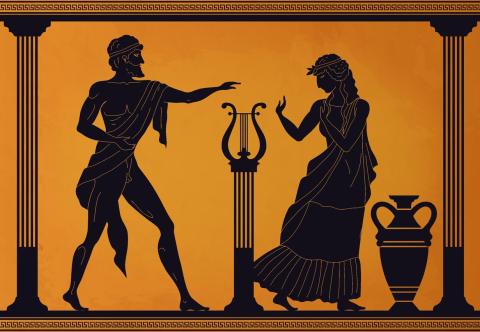(Harder) Famous Opening Lines Quiz
”A screaming comes across the sky.”
- Gravity's Rainbow is a complicated novel, but the core of the story is about the development of the V-2 Rocket. The title and opening line both basically refer to the trajectory of a rocket.
"riverrun, past Eve and Adam's, from swerve of shore to bend of bay, brings us by a commodius vicus of recirculation back to Howth Castle and Environs."
- A lot can be said and has been said about this opening line. The most important thing to note is that it begins in the middle of a sentence, the beginning of which is said at the end of the book.
"For a long time, I went to bed early." (trans. Lydia Davis)
- Despite Proust's deserved reputation for long, winding sentences, he starts his magnum opus with this punchy little line.
"To be born again," sang Gibreel Farishta tumbling from the heavens, "first you have to die."
- The tumbling from the sky mentioned in the opening line is pretty literal; the protagonists are falling from an exploding plane. Talk about in media res.
"Granted: I am an inmate of a mental hospital; my keeper is watching me, he never lets me out of his sight; there's a peephole in the door, and my keeper's eye is the shade of brown that can never see through a blue-eyed type like me." (trans. Ralph Manheim)
- The Tin Drum was adapted into a film in 1979 which won the Palme d'Or and the Oscar for Best Foreign Language Film.
"I am an American, Chicago born—Chicago, that somber city—and go at things as I have taught myself, free-style, and will make the record in my own way: first to knock, first admitted; sometimes an innocent knock, sometimes a not so innocent."
- This books was credited with winning Saul Bellow a Nobel Prize for Literature, with special consideration to its picaresque qualities.
"He—for there could be no doubt of his sex, though the fashion of the time did something to disguise it—was in the act of slicing at the head of a Moor which swung from the rafters."
- The gruesome display will be more jarring to most readers, but the real kicker lies in the very beginning. Virgina Woolf's exploration of gender kicks off with the quickly challenged notion "for there could be no doubt of his sex."
"Miss Brooke had that kind of beauty which seems to be thrown into relief by poor dress."
- Like many other great lines, this one immediately conjures up the novel's major concerns; in this case, wealth, marriage, and social values.
Stately, plump Buck Mulligan came from the stairhead, bearing a bowl of lather on which a mirror and a razor lay crossed.
- The opening of Ulysses features the sacrilegious Buck Mulligan performing a mock sacrament atop their martello. We feel obligated to call out the exceptional consonance and assonance in the first four words. It's very pleasing to say.
"Ships at a distance have every man's wish on board."
- The book uses this example to describe a fundamental difference between men and women, and the relationships between them.
"Mother died today." (trans. Stuart Gilbert)
- The nonchalance that begins the Stranger characterizes its protagonist, a man for whom life is alienating and distant.
"I was the shadow of the waxwing slain / By the false azure in the windowpane"
- This line begins the in-fiction poem "Pale Fire," but it only debatably opens Nabokov's metatextual novel "Pale Fire." One could also argue that the first line of the novel is "Pale Fire, a poem in heroic couplets, of nine hundred ninety-nine lines...
"In the late summer of that year we lived in a house in a village that looked across the river and the plain to the mountains."
- Hemingway starts his World War I novel with a general description of place. He sketches the setting more thoroughly as the warring sides continue to battle over the same small stretch of land.
“I’ve been cordially invited to join the visceral realists.” (trans. Natasha Wimmer)
- The Visceral Realists are a band of roving elitist poets, who form the core of the novel. The "savage detectives" are a series of several dozen narrators who run afoul of this bizarre literary movement.
This one's a long one: "I wish either my father or my mother, or indeed both of them, as they were in duty both equally bound to it, had minded what they were about when they begot me; had they duly considered how much depended upon what they were then doing;—that not only the production of a rational Being was concerned in it, but that possibly the happy formation and temperature of his body, perhaps his genius and the very cast of his mind;—and, for aught they knew to the contrary, even the fortunes of his whole house might take their turn from the humours and dispositions which were then uppermost:—Had they duly weighed and considered all this, and proceeded accordingly,—I am verily persuaded I should have made a quite different figure in the world, from that, in which the reader is likely to see me."
- To put it succinctly: "If my parents had thought about the responsibility of having a kid, I might have turned out differently."







